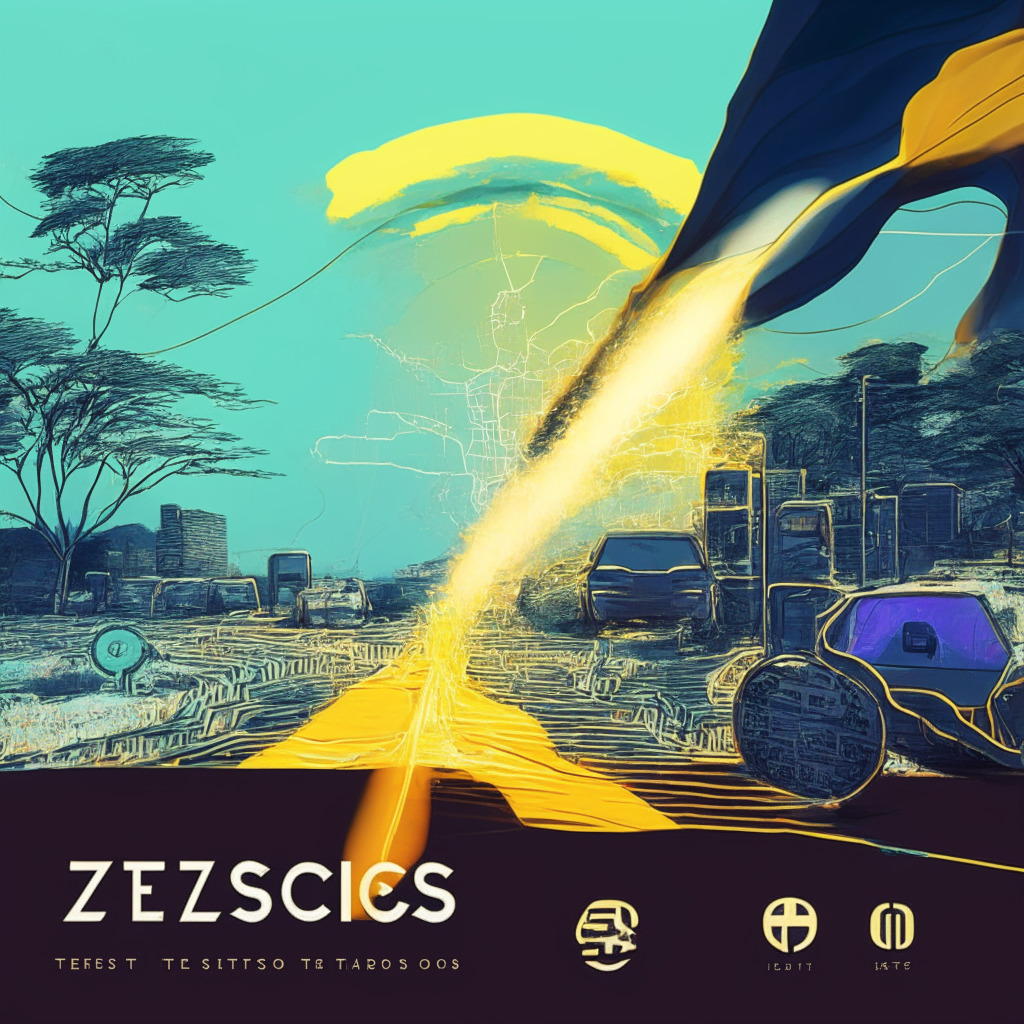Japanese traders are increasingly turning to Bitcoin following recent exchange rate instability. Data shows a significant surge in Bitcoin trade volume from 69% to 80% on Japanese exchanges within the first half of the year, which mirrors a rising appetite within the Japanese markets. Factors affecting this shift include Bitcoin’s status as a hedge against traditional finance, potential regulatory enhancements, and Japan’s current inflation concerns.
Search Results for: Paris
Exploiting Regulatory Advancements: France’s Bullish Stance on Crypto versus US’s Control Approach
France is advocating for regulatory certainty in cryptocurrency, embracing the forthcoming MiCA EU laws, and a pro-innovation approach contrasting the U.S. notably, crypto powerhouses like Binance have registered under France’s crypto law PACTE. However, this doesn’t exempt them from legal scrutiny. France’s conducive crypto environment also offers strong technological competence for ventures.
Unleashing the Power of Bitcoin ETFs: A $30 Billion Boom or a Fizzle?
Bitcoin spot exchange-traded funds (ETFs) could potentially bring a $30 billion influx to the digital asset market, sparked by applications from financial giants like BlackRock and Fidelity, according to NYDIG. Despite Bitcoin’s volatility, which is 3.6 times that of gold, the potential for a Bitcoin ETF could create significant additional demand.
Cryptocurrency Challenges Parallel Early Auto Industry: A Historical Paradox Unveiled
This article draws parallels between the challenges faced by pioneers of the automobile industry in the 1890s and current crypto developers. From recognition and distancing from scams, to impractical ideas and fraudulent operators, the hurdles are notably similar. However, a spirit of cooperative innovation also links these two technological transformations.
Venture Capital in Crypto Startups: Tackling High Rewards, Risks and Evolving Strategies
“High-profile VCs advise focusing on exclusive clientele and well-designed, marketed airdrops for boosting startup traction in the crypto market. Varying views exist on influencer marketing and ICOs, with emphasis on adaptability due to rapidly evolving regulations and market conditions.”
Bitcoin’s Battle Against Interest Rate Hikes: A Test of Endurance in U.S.’ Growing Economy
“Bitcoin struggles amid the release of U.S. economic data affirming continued growth, and prospect of another interest rate hike by the Federal Reserve. Despite lacklustre retail sales, a deeper look into consumer spending shows optimism. Questions arise regarding Bitcoin’s ability to withstand another Fed rate hike.”
Aave’s GHO Stablecoin Accomplishes $2.5 Million Minting in Two Days: An Insightful Analysis
Aave’s new stablecoin GHO, backed by the Ethereum network, generated $2.5 million within 48 hours of its launch. It operates under the governance of the Aave DAO community and offers robustness and dynamism through over-collateralized assets. With the release of GHO, Aave’s total locked value increased significantly, highlighting the platform’s success and market growth.
Ripple’s XRP Classification: A Security for Some, a Cryptocurrency for Others
“The recent court ruling designates Ripple’s XRP as an unregistered security when traded by institutional investors, not for other investors. This ruling followed a lawsuit by the Securities and Exchange Commission and has led to soaring XRP prices. However, it doesn’t clarify the legal status of cryptocurrencies in the US, maintaining the divide between retail and institutional investors. Crypto law remains complex and ever-changing.”
Bridging the Gap: Gnosis Fuses Decentralized Payments with Visa’s Traditional Channels
Gnosis is pioneering the integration of decentralized payment systems with conventional channels, launching products allowing users to spend their digital assets from wallets via Visa’s system. Gnosis Pay and Gnosis Card, a self-funded Visa debit card connected to an on-chain wallet, aim to simplify the movement of crypto-assets and reinforce the Gnosis blockchain ecosystem.
Unveiling UniswapX: A Solution to DEX Challenges or an Avenue for Greater Market Competition?
Uniswap, a global leader in the decentralized crypto exchange, has announced the development of a new blockchain infrastructure, “UniswapX”. It’s designed to streamline trading on automated market makers and offers capabilities such as better pricing, gas-free swapping, and protection against maximum extractive value (MEV). Future updates anticipate gas-free cross-chain swaps and a deeper integration with the Uniswap wallet.
Bolstering Blockchain: The Integration of ZK Proofs in Cryptographic Technologies
This article discusses the partnership between Paris-based =nil; Foundation and Fabric Cryptography as they work together to enhance cryptographic technologies and accelerate the deployment of zero-knowledge (ZK) proofs – a cryptographic procedure with substantial privacy-preserving attributes. They aim to overcome barriers in computation, making ZK proofs more functional for digital transactions, cloud services and privacy applications.
Bitcoin’s Market Resilience: Robust Inflows into Bitcoin ETFs and Retail Demand Surge
“Crypto market trends show Bitcoin holding comfortably above the $30,000 mark, driven by high retail demand for products like Bitcoin ETFs. Despite expected short-term liquidity dips, trading volumes of Ether and other altcoins are set to rise.”
Unexpected XRP Volume Surge in South Korean Exchange: Authentic Demand or Market Manipulation?
South Korean exchange, UpBit, experienced an unusual surge in XRP trading volumes, topping at $2.5 billion; over half the exchange’s total during the same period. Driven by a US court ruling that XRP sales don’t fall under ‘investment contracts’, this growth outperformed typical Bitcoin and Ether activity. This surge may partially reflect ‘wash trading’, a method used to generate false impressions of market activity.
XRP Surpasses BNB Despite Legal Worries: Analyzing the Recent Cryptocurrency Shakeup
XRP, a payments-focused cryptocurrency, has surpassed BNB token’s market cap, securing the fourth place on the global digital assets charts. This surge can be traced back to a 66% spike in the last 24 hours and a partial victory in a lawsuit against the U.S. Securities and Exchange Commission, which could potentially lead to a renewed listing of XRP on centralized exchanges.
UAE’s Proactive Stance on Crypto Regulation: An Ideal Model or an Unattainable Standard?
“Dubai’s Virtual Assets Regulatory Authority has demonstrated a novel regulatory approach to digital assets, offering a clearer and more proactive regulation environment than the U.S, emphasizing the benefits of a flexible regulatory framework for digital assets that supports innovation and preserves regulatory power.”
The Battle of the Bears and Bulls: Will Bitcoin’s $30k Support Crumble on July 14?
The Bitcoin weekly options expiry on July 14 may shift market attitudes, with potential for the $30,000 support level to crumble. The recent U.S. inflation drop could encourage investors to pivot to fixed-income investments, making Bitcoin less appealing. However, the final outcome remains uncertain, given latest macroeconomic data and critiqued exchange practices.
Google AI Training Lawsuit: Clash Between Privacy Rights and Technological Evolution
Google faces a lawsuit for allegedly misusing data, including copyrighted items, for AI training without necessary consent, sparking a debate about internet ownership. A court order could demand explicit user permission for data collection or potentially fine Google up to $5 billion.
The Invisible Border Walls in Crypto: A Deep Dive into Global Bias and Potential Growth Horizons
This article explores the global perspective on Ethereum communities, addressing the latent stigma and safety concerns associated with unconventional venues. It highlights the potential of regions less familiar for Ethereum, acknowledging their untapped user bases and their ability to provide the much-needed human stories of progress in the crypto-industry. It advocates for leveraging blockchain’s potency to transform socio-economic levels and emphasizes the need for an inclusive, global perspective.
Decentralized Autonomous Organizations Enhancing Crypto User Experience: Potential and Challenges
Decentralized autonomous organization, Index Coop, is addressing challenges in improving user experience for on-chain structured products in the digital asset industry. Stymied by infrastructure limitations and high maintenance costs, they are investigating solutions such as auction-based rebalancing to boost operational efficiency.
Impending Mt. Gox Repayment Deadline May Stir Bitcoin Market Turbulence
As the Mt. Gox’s repayment deadline approaches, anticipation among crypto enthusiasts builds potentially affecting Bitcoin’s value. Many predict that incoming sell orders from creditors regaining their BTC might cause a downturn. This major event involves a projected repayment of 142,000 BTC to creditors, adding complexity to market outcome predictions.
Navigating the Rough Waters: Binance’s Battle with Global Regulatory Unrest
“Binance, a global cryptocurrency exchange, currently faces global regulatory scrutiny that has pushed the company on the defensive. From Australian officials’ direct inquiries, U.S and French regulator charges, to the rejection from the Dutch, indicate a growing regulatory dissatisfaction globally.”
Institutional Dominance Over Crypto: A New Era or Just a Temporary Flare?
“San Francisco-based crypto bank, Anchorage Digital, reports an 80% rise in its assets under custody in Q1 2023, indicating a shift towards institutionalization in the crypto market. Large institutions like BlackRock apply strategies towards cryptocurrencies, potentially changing the crypto market dynamics.”
Bored Ape Yacht Club NFTs: Lessons from Market Crash and Importance of Community Support
“The Bored Ape Yacht Club (BAYC)’s floor price plunged by approximately 82% signalling a significant drop in its NFT value. The trends highlight the importance of organic demand and a devoted community of stakeholders versus speculators, who can potentially destabilise the market. A combination of aggressive marketing to a mainstream audience and lack of in-depth understanding of the value proposition exacerbated the decline.”
Measuring L1 Blockchain Viability: The Shift from Traditional Metrics to YTP Analysis
The article discusses the importance of assessing layer-1 blockchains profitability using a Years-to-Profitability (YTP) ratio method. It highlights the role of emissions schedule and tokenomics in projecting future costs. Furthermore, the article stresses the value of YTP as a tool in measuring a blockchain’s profitability and sustainability, particularly in relation to burn mechanisms and supply dynamics.
The Downfall of Petro: A Tale of Venezuela’s State-Backed Cryptocurrency
“Petro, Venezuela’s state-backed crypto, is facing a downfall after a promising start. The state agency pioneering it has disbanded following a corruption crackdown, halting development work. International sanctions and misuse by corrupt officials have expedited its decline, leaving its future looking bleak.”
Bitcoin Depot’s NASDAQ Debut: A Rising Star or a Risky Gamble? On Crypto ATMs and Market Amalgamations
Bitcoin Depot, the world’s largest crypto ATM operator, saw its shares double after its NASDAQ debut following an $885 million SPAC deal. The firm became the first crypto ATM operator to list on a major US stock market, reflecting a growing acceptance of cryptocurrency. ATMs serve as an easy way for users to buy and transfer crypto, despite a rising trend in fraudulent activity.
DeFi Industry Battles Expansive Scams and Hacks: The Harrowing Reality in 2023
“In Q2 2023, the DeFi industry witnessed substantial losses over $204 million due to various scams and hacks, according to De.Fi’s Rekt Report. Comparison to the previous year shows a drastic surge in incidents and total losses. The report’s findings underscore the urgent need for robust systems to trace and recover stolen funds in this drastically emerging industry.”
Navigating the Complex Terrain of Crypto-Regulation: A Comparative Outlook
Animoca Brands CEO, Yat Siu, discusses the difficulties North American crypto entrepreneurs face compared to other regions due to macroeconomic and regulatory impacts. However, despite challenges like downturns in cryptocurrency prices and high global interest rates, the crypto industry continues to grow, with more people and smart contracts entering the scene. Siu’s comments highlight the fluctuating global terrain of crypto-regulation and the varying approaches of different region’s regulators.
Unraveling the FTX Debacle: A Disproportionate Price for Crypto Bankruptcy?
“The FTX bankruptcy has raised concerns due to disproportionately high restructuring and recovery costs compared to similar past cases. These expenses already exceed $200 million, impacting large creditors and retail investors. This situation underscores the complexities of the fast-paced digital economy and the need for transparent regulatory paths and enhanced caution in future situations.”
Navigating Crypto Regulations: Lessons from Hong Kong and the US’s Missed Opportunities
“Web3 companies are shying away from New York due to stringent crypto regulations. In contrast, China and Hong Kong are embracing innovation in the crypto space, showing flexibility and support for sector growth, posing attractive alternatives for crypto enterprises.”
Navigating the High Stakes Terrain of Blue-Chip NFTs: A Venture into Prestige and Uncertainty
“Blue-chip nonfungible tokens (NFTs) have emerged as high value crypto assets, mirroring blue-chip stocks. Successful investment requires deep market knowledge, due diligence, and careful maneuvering. Risks include potential fraud, uncertain legislation, and intellectual property violations; mitigated by research, diversification, and market awareness.”
Tezos Nairobi Upgrade: Improved Speed and Fees vs. Low Usage and XTZ Decline
The Tezos blockchain’s 14th upgrade, “Nairobi,” offers transaction speeds up to eight times faster and introduces a new fee mechanism based on network usage. However, Tezos’ low usage and the XTZ token’s underwhelming performance raise questions about its long-term viability in the competitive blockchain ecosystem.































